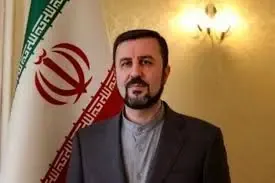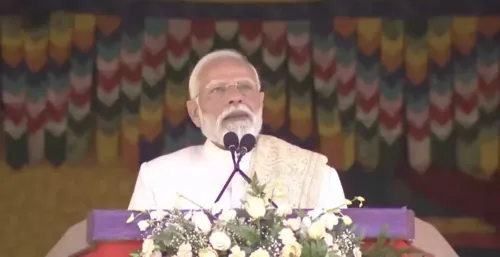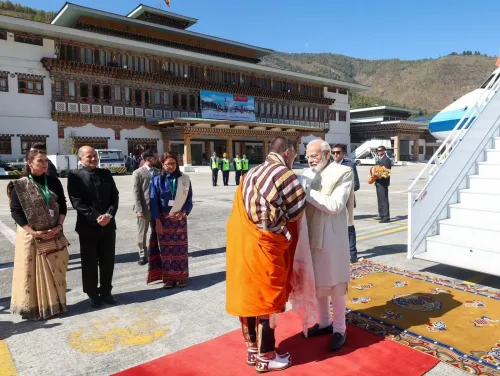Iran Engages Seriously in US Talks, Aims for No Delays: Deputy FM

Synopsis
Key Takeaways
- Iran is serious about negotiations with the US.
- Tehran seeks no delays in the diplomatic process.
- Sanctions should be lifted to benefit the Iranian economy.
- Iran will not negotiate on uranium enrichment rights.
- Previous talks in Rome and Muscat focused on nuclear issues.
Tehran, April 21 (NationPress) Iran's Deputy Foreign Minister Kazem Gharibabadi stated that the nation is committed to its indirect negotiations with the United States and seeks to avoid any delays in the diplomatic efforts.
Gharibabadi expressed these views during a meeting with the members of the parliament's National Security and Foreign Policy Committee in Tehran on Sunday, as reported by the official news agency IRNA, citing committee spokesperson Ebrahim Rezaei.
During the second round of indirect discussions held in the Italian capital Rome on Saturday, Gharibabadi noted that both Tehran and Washington addressed and reached agreements on the overall framework, agenda, and subsequent technical negotiations.
Rezaei mentioned that the deputy foreign minister emphasized that all sanctions imposed on Iran should be removed in a way that economically benefits the Iranian populace, while also asserting that Tehran will not compromise on its right to enrich uranium, which he labeled as one of the red lines.
The talks in Rome, along with the prior discussions in the Omani capital Muscat on April 12, have focused on Tehran's nuclear program and the lifting of Washington's sanctions, as reported by Xinhua.
Both parties have described the talks as constructive, following threats from US President Donald Trump to bomb Iran if the Middle Eastern nation does not accept his proposal for talks outlined in a letter sent to Iran's leadership in early March.
Iran entered into a nuclear agreement, known as the Joint Comprehensive Plan of Action, with six major countries—Britain, China, France, Germany, Russia, and the United States—in July 2015, agreeing to limits on its nuclear program in exchange for sanctions relief.
However, the United States exited the agreement in May 2018 and reinstated sanctions, which led Iran to reduce some of its nuclear commitments. Attempts to revive the nuclear deal have not made significant headway.









